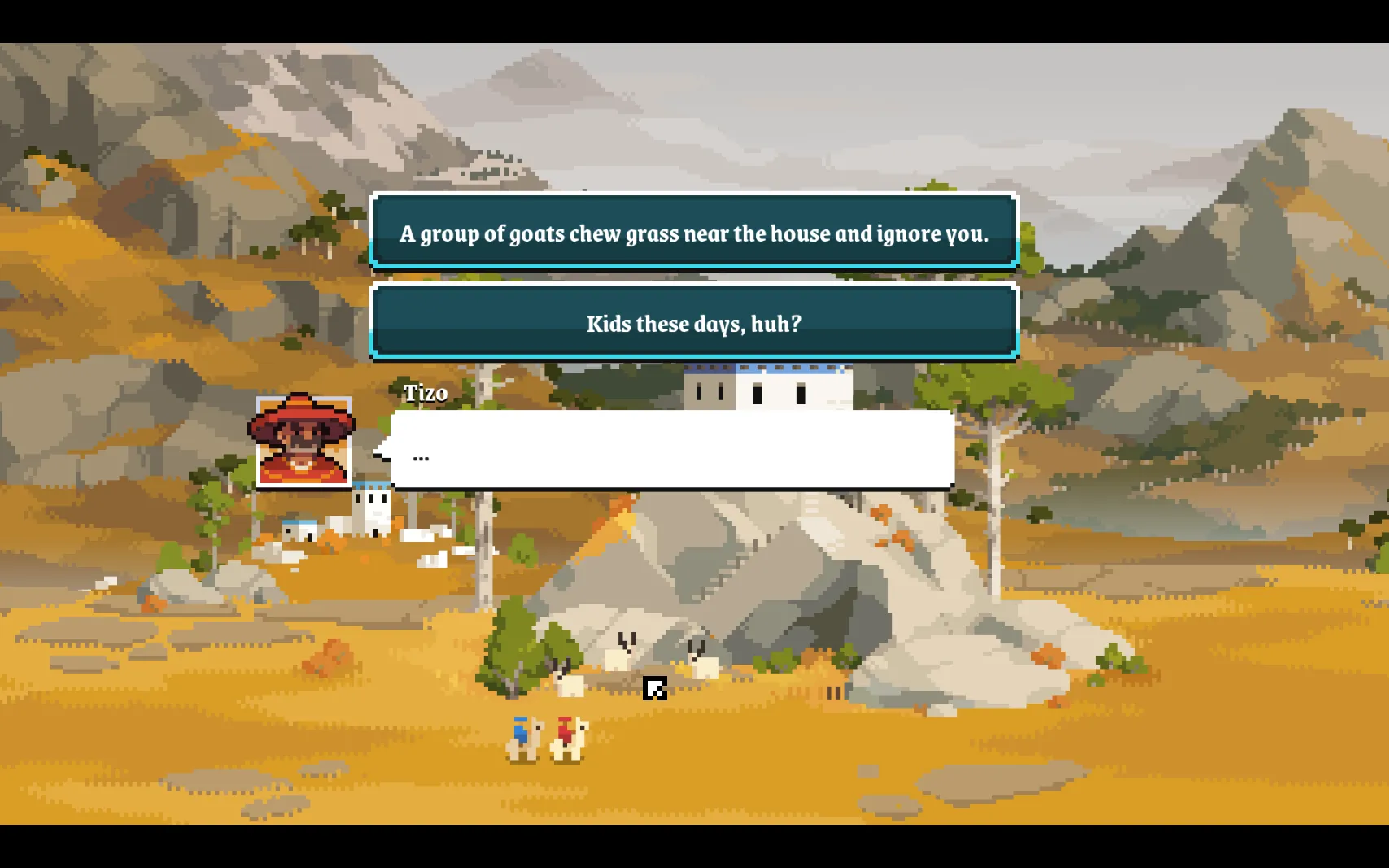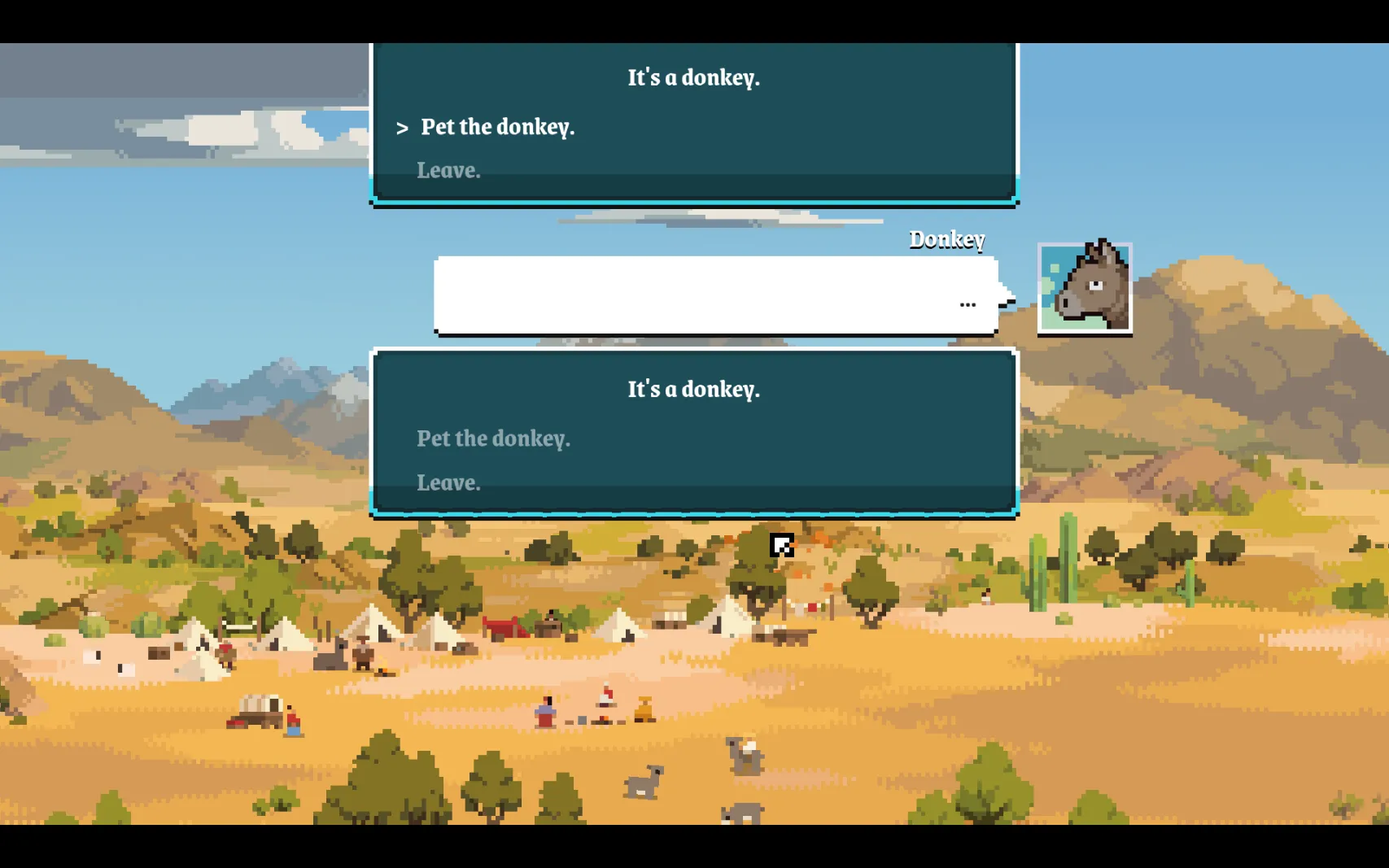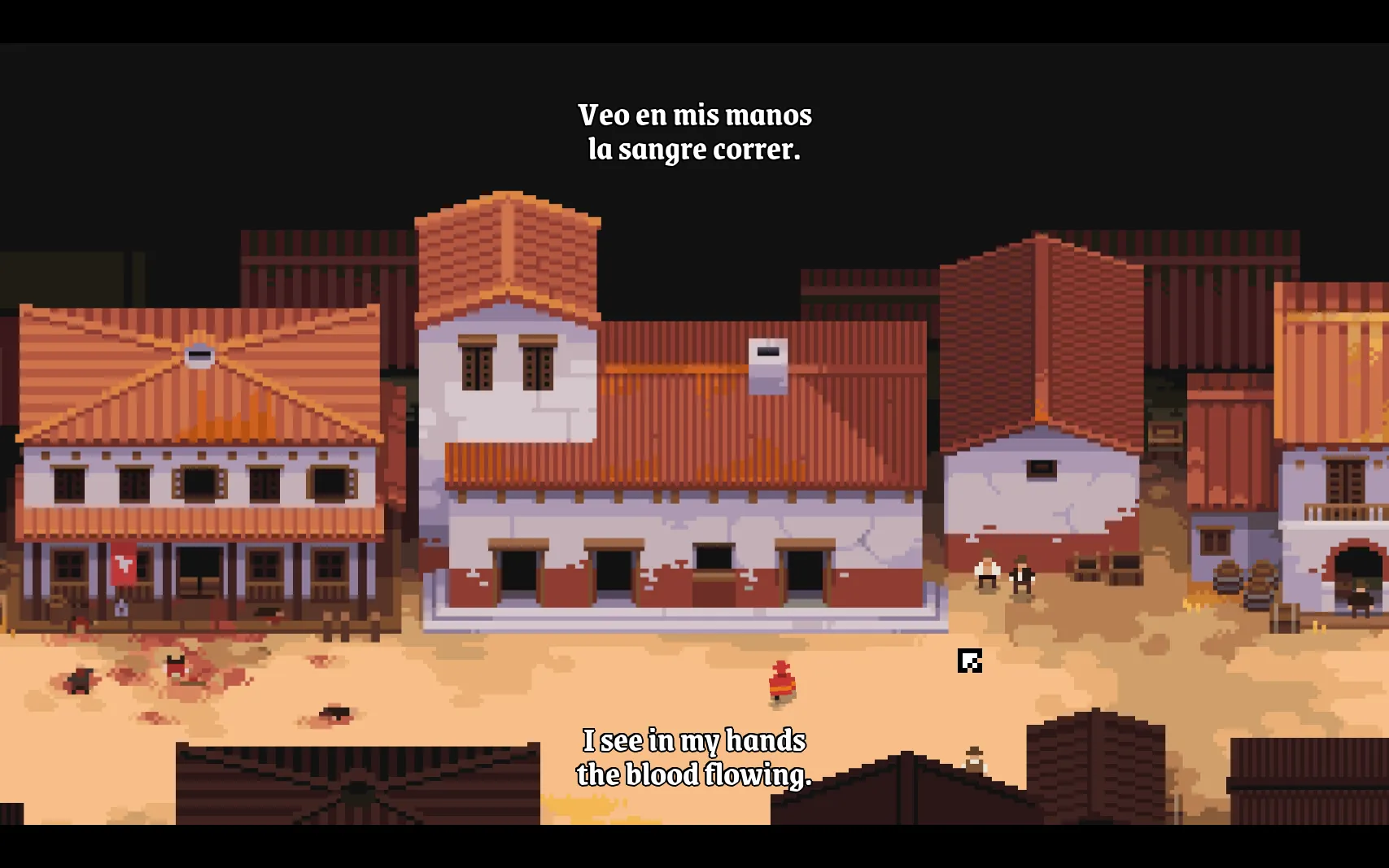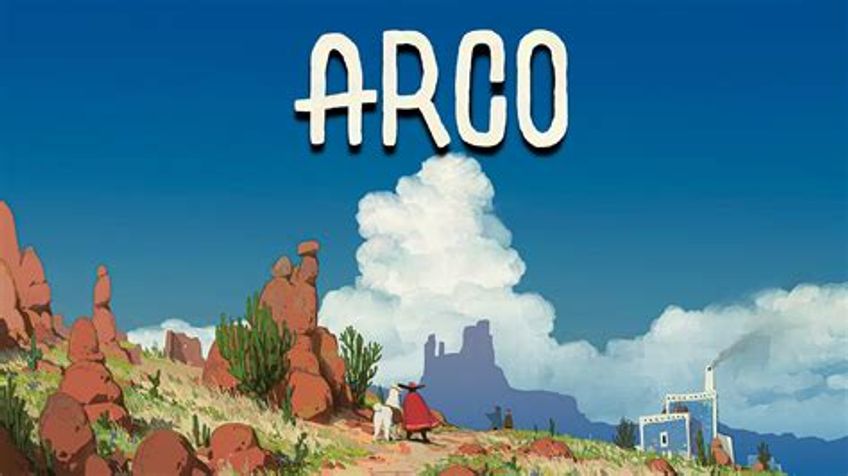Arco
I’m going to be honest. I am an absolute sucker for games that explore cultures I’m not familiar with. Arco was always going to be at least a bit of a hit with me, just by virtue of showing me something I don’t usually get to see.
 Also puns. Be still, my heart.
Also puns. Be still, my heart.
Arco is an action-adventure RPG. Set in an alternate (but not too alternate) fantasy version of the old west, Arco follows a series of indigenous protagonists as they embark on quests, battle monsters, and confront the changing reality of their world.
And I love it. Unabashedly, unashamedly, I love it.
The very first quest of the game follows an indigenous child named Teco. He and his family have journeyed from their homeland to repeat the pilgrimages their ancestors have always traditionally made. However, once they arrive at their sacred tree, they find it’s been occupied by colonisers, making it impossible for them to get there. Throughout the quest, the player is shown how Teco and his family have adapted to the colonisation of their land, how they’ve maintained their traditions, and how what we understand to be the inevitability of colonisation is not inevitable. If anything, we’re presented with a world in which the past continues to live alongside the future, and where identity remains deeply meaningful, even as the world seeks to destroy it.
This is a game about colonialism that not only takes the perspective of the colonised, but ensures their voices and perspectives resonate. This isn’t a horror game or a tragedy. This is an adventure in a changing, fantastic world, and I cannot express enough how much I love it for that.
 Also I can pet a donkey.
Also I can pet a donkey.
Where the game truly excels, however, is in how the message of its story resonates in its mechanics. Arco’s combat system is a turn-based tactical system, with players having a variety of abilities and items that they can use to defeat enemies. Each character’s abilities are different, giving each storyline a very different feel and strategy, ensuring that the combats never feel stale.
However, it’s the game’s guilt system that makes the combat truly interesting and unique. Throughout the story sections of the game, the player is confronted with decisions. Depending on the choices they make, their character may feel more or less guilt. Rather than being solely a character-informing feature, though, guilt manifests in combat, with malevolent spirits hounding the player throughout combat, forcing them to take actions they might not otherwise have done, or to move more quickly than is necessarily wise.
Trauma itself becomes a mechanic in Arco. It’s highly effective, both at making the player consider their actions more carefully, and at reinforcing the overall story. This is a game where the past informs the future, where time and consequences blend together, and where we are the product of the decisions we’ve made.
 Oh, and it has occasional musical numbers. Can't forget the musical numbers.
Oh, and it has occasional musical numbers. Can't forget the musical numbers.
Arco is unlike any RPG I’ve played, both in terms of its setting, and in how it works the setting into the very mechanics of the game. It is a gorgeous, glorious testament to the power of storytelling and what video games can be as narrative tools. Most importantly, though, it is an example of reframing the story. This is an indigenous story, framing indigenous peoples as the arbiters of their own destinies within a changing world. It reclaims the western for those too often framed as the faceless villains, and it’s wonderful for it.
Developer: Franek, Max Cahill, Bibiki, Fayer
Genre: Action, adventure, RPG
Year: 2024
Country: Australia, Poland, Spain, Mexico
Language: English
Play Time: 12 hours
Playthrough: https://youtu.be/yNz9TfIW0sw
